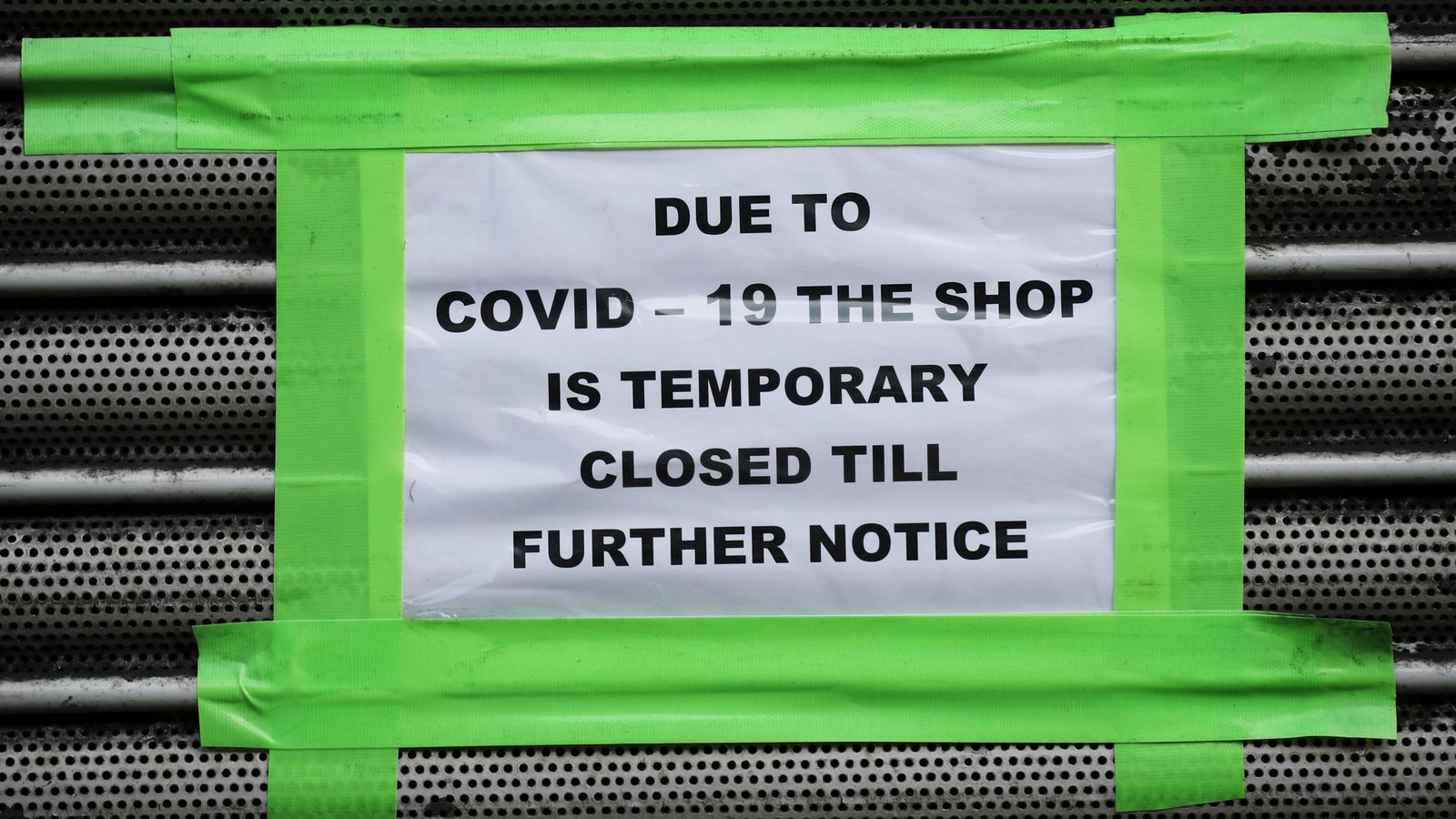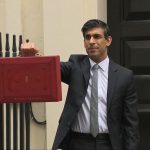Criticism has been levelled by MPs at the government for failing to tackle the “hard edges” in support for the self-employed nearly a year on that has meant a large number losing out.
Given the extended duration of coronavirus restrictions, members of the Commons Treasury select committee argued it was “wrong” not to address gaps in financial help.
The influential cross-party group also stressed the need for the government to set out clear criteria for when the COVID-19 curbs will be lifted when it publishes its “plan for taking the country out of lockdown” next week.
Live COVID updates from the UK and around the world
Please use Chrome browser for a more accessible video player
In addition, the MPs expressed their “disappointment” at a lack of analysis from the Treasury on the economic implications of the restrictions imposed.
The government has currently extended both the Coronavirus Job Retention Scheme (CJRS) and the Self-Employment Income Support Scheme (SEISS) to the end of April 2021.
With the latter “rolled out at speed” last spring in response to the public health crisis, the committee said: “Partly because of that haste, there were ‘hard edges’ which meant that some people lost out. Though regrettable this is understandable.
“However, there is little justification for not having addressed them eleven months later.”
The report added: “We recognise that it may not have been possible for the government to help all those who have fallen through the cracks of the support schemes.
“However, we are disappointed that the government has so far shown no inclination to expand or provide alternatives to the SEISS, which is providing a vital life-line to many but is not available to all those whom we believe should qualify.”
Self-employed company directors who pay themselves largely in dividends have lost out, as have the newly self-employed.
To be eligible for financial support, self-employed people must have traded during the financial years ending in 2019 and 2020 and submitted a self-assessment tax return for the former before April last year.
The committee said this could be addressed by using newer tax returns to let people apply for support.
It also suggested the government reconsider the threshold for the scheme so that people who get less than half their income from self-employment can get some support.
The committee’s chairman Mel Stride said: “Nearly a year on from when the government first introduced coronavirus support schemes, those who have been excluded must not be forgotten.”
He added: “After almost a year of restrictions, people and businesses need confidence that the government has a clear route out of the crisis.
“To provide this confidence, the government must set out the criteria for how and when it will lift lockdown restrictions.
“This should be supported by combined economic and epidemiological modelling undertaken by the Treasury, showing how it would best optimise health and economic outcomes.”
Please use Chrome browser for a more accessible video player
The Treasury said: “The prime minister has said that we’ll set out a clear roadmap out of the current restrictions with dates later in February.
“Throughout this crisis, we have done all we can to support jobs and livelihoods, spending over £280bn in response to the pandemic.
“We acknowledge that it has not been possible to support everyone in the way they might want, but we continue to keep our schemes under review and will set out the next stage of economic support at budget.”






















